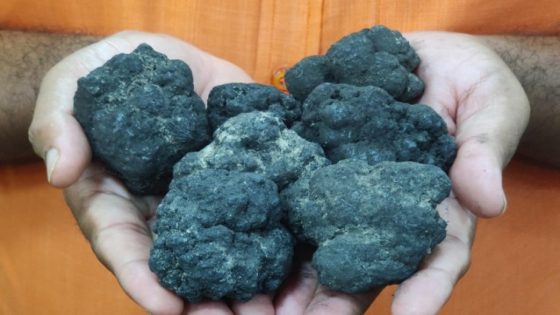Scientists are exploring whether there is another way to produce oxygen, following the discovery of “dark oxygen” on the ocean floor last year. This groundbreaking find has sparked curiosity and excitement in the scientific community about alternative oxygen sources.
- © Corbis via Getty Images
- Discovery of "dark oxygen" in ocean
- Oxygen produced by metal-rich nodules
- Research project to study dark oxygen
- Clarion-Clipperton Zone's unexplored potential
- Implications for extraterrestrial life research
On January 18, 2025, researchers announced plans for a three-year project to further investigate this phenomenon. Could this lead to new insights into life both on Earth and beyond?
New Research Aims to Uncover Alternative Oxygen Production Methods
What if we could produce oxygen without sunlight? The recent discovery of dark oxygen challenges our long-held beliefs about how this essential element is created. Scientists found metallic nodules in the Clarion-Clipperton Zone that generate oxygen through electrolysis, raising questions about other possible methods of oxygen production.
The Significance of Dark Oxygen Discovery in Marine Science
The discovery of dark oxygen highlights just how little we know about deep-sea environments. Researchers are now focused on studying these metallic nodules more closely. Here’s why this matters:
- This finding may redefine our understanding of marine ecosystems.
- It opens up possibilities for life forms existing in extreme conditions.
- The study could inform future deep-sea mining operations for rare metals.
- This knowledge might aid in searching for extraterrestrial life.
The Role of Electrolysis in Oxygen Production
The process behind dark oxygen involves splitting seawater into hydrogen and oxygen using electrical charges from metallic nodules. This method differs significantly from photosynthesis, which relies on sunlight. Understanding electrolysis can pave the way for innovative technologies both underwater and beyond Earth’s atmosphere.
Future Implications for Space Exploration
If scientists can harness similar processes found in deep-sea environments, it could revolutionize how we approach sustainability during long-term space missions. Imagine astronauts producing their own breathable air using techniques derived from ocean discoveries! This research not only enriches marine biology but also expands horizons for human exploration.
A Paradigm Shift in Our Understanding of Life
This paradigm shift invites US to rethink what constitutes a habitable environment. If organisms can thrive where light doesn’t reach, what else might exist out there? As Andrew Sweetman states, “Our discovery was a paradigm shift… but it raised more questions than answers.” The quest continues!































